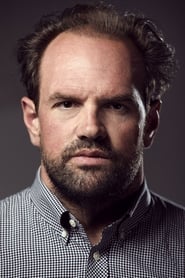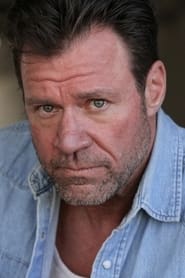Ask Your Own Question
What is the plot?
In 2007, Captain Sam Cahill, a devoted United States Marine Corps officer, prepares for his fourth deployment to Afghanistan. Sam, played by Tobey Maguire, is a family man deeply connected to his wife Grace Cahill (Natalie Portman) and their two young daughters, Isabelle and Maggie. The Cahill household is a picture of stability, yet beneath the surface, tensions simmer. Sam's younger brother, Tommy Cahill (Jake Gyllenhaal), recently released on parole after serving time for armed robbery, arrives just days before Sam's departure. Tommy is a troubled but earnest man, attempting to reconnect with his fractured family.
The story opens with the brothers and their family gathering for a tense dinner at the Cahill family home. Hank Cahill (Sam Shepard), the patriarch and a Vietnam War veteran, openly insults Tommy, belittling his criminal past and accusing him of failing to understand Sam's military duty. Hank's bitterness toward Tommy is palpable, and he even admits that his own Vietnam experience influenced his pressure on Sam to join the Marines. Tommy, stung by the harsh words, fires back, accusing Hank of pushing Sam into a dangerous life out of his own unresolved guilt and pride. This confrontation sets the tone for the family's strained dynamics, underscoring the deep divides between the brothers and their father.
Shortly after, Sam departs for Afghanistan, where he and Private Joe Willis are deployed. Their mission is abruptly shattered when their helicopter is shot down in hostile territory. Both men survive the crash but are captured by the Taliban. The U.S. government soon declares Sam killed in action, leaving his family and community to mourn his loss. Back home, the news devastates Grace and the children, while Tommy, grappling with his own guilt and grief, lashes out at Grace, blaming her for letting Sam go to war.
At Sam's memorial service, the family's fractures deepen. Hank drunkenly attempts to drive Elsie and the girls home, but Tommy intercepts him, leading to another bitter exchange. Hank's disdain for Tommy is unrelenting, and Tommy's accusations about Hank's influence on Sam's military path only widen the rift.
Meanwhile, Tommy steps in to help Grace with a kitchen remodel, a tangible effort to mend the family's broken bonds. As he works alongside Grace, he forms a growing, protective bond with Isabelle and Maggie, who begin to see him as a father figure. Grace and Tommy share a brief, impulsive kiss, but they consciously decide not to pursue a romantic relationship, aware of the emotional complexities and the fragile state of the family. Tommy also seeks redemption by apologizing to a bank teller he once held at gunpoint during his robbery, signaling his desire to change.
In Afghanistan, Sam and Joe endure brutal captivity. They are confined to a small, dark hole with minimal food and water, subjected to torture and psychological torment. The Taliban forces them to record propaganda videos, which they resist with fierce defiance. The harrowing conditions push Sam to the brink. In a devastating moment of survival and despair, Sam is forced to kill Joe with a metal pipe to save himself from further torture. This act, a brutal moral compromise, leaves Sam irreparably scarred, burdened by guilt and trauma.
Unbeknownst to his family, Sam is alive. His return home, however, is far from triumphant. He comes back physically intact but mentally shattered, haunted by the horrors he endured. Sam's reintegration into family life is fraught with paranoia and suspicion. He becomes convinced that Tommy and Grace had an affair during his absence, a belief fueled by his fractured mental state and Isabelle's resentful claim during Maggie's birthday party that his suspicions are true.
Sam's paranoia erupts violently. In a harrowing scene, he destroys the newly remodeled kitchen with a crowbar, the very space symbolizing Tommy's attempts to rebuild the family. When Tommy arrives to calm him, Sam pulls a pistol on his brother, his grip on reality slipping dangerously. The tension escalates until the police arrive, responding to the disturbance. In a moment of desperation, Sam holds the gun to his own head, teetering on the edge of suicide. But he ultimately surrenders, overwhelmed by his inner torment.
Sam is admitted to a mental hospital for treatment. Grace visits him, confronting him with a heartbreaking ultimatum: he must reveal the truth behind his suffering or risk losing her forever. Faced with this plea, Sam breaks his silence. He confesses the unbearable truth--that he was forced to kill Joe Willis while captive. This confession is a pivotal moment, a raw and painful release that begins the slow process of healing. Grace embraces him, their shared pain forging a fragile bond of understanding.
The film closes on a somber but hopeful note. A voice-over of a letter exchange between Sam and Grace plays over scenes of tentative reconciliation. Sam wonders if he can ever lead a normal life again, acknowledging the lasting impact of trauma but also the possibility of recovery through honesty and love. The final image lingers on the family home, a place marked by loss and pain but also by the enduring ties of family.
Every death in the story is stark and consequential: Private Joe Willis dies at Sam's hands under the cruel duress of Taliban torture, a haunting secret that defines Sam's psychological collapse. No other characters die, but the emotional deaths--the shattering of trust, the breakdown of mental health, the near-suicide--are as potent as any physical loss.
The confrontations--between Hank and Tommy, between Sam and his family, and within Sam himself--drive the narrative's tension, each escalating toward the climactic breakdown and eventual confession. The kitchen remodel symbolizes the fragile hope of rebuilding broken relationships, only to be shattered in Sam's violent outburst, underscoring the devastating effects of war trauma on families.
By the film's end, the Cahill family is irrevocably changed. The truth of Sam's experience is laid bare, the illusions of infidelity dispelled, and the path to healing begins, though the scars remain. The story is a powerful exploration of the costs of war, the complexities of brotherhood, and the resilience of family bonds in the face of unimaginable hardship.
What is the ending?
In the ending of the movie "Brothers" (2009), Sam and Grace's family is left in turmoil after the return of Sam's brother, Tommy. Sam struggles with the emotional scars of war, while Tommy grapples with his own demons. The film concludes with a tense confrontation between the brothers, leading to a moment of reconciliation, but the emotional fallout remains unresolved.
As the film approaches its conclusion, the tension escalates. Sam, played by Tobey Maguire, returns home after being held captive in Afghanistan. His experiences have left him deeply traumatized, and he struggles to reconnect with his wife, Grace (Natalie Portman), and their two daughters. Meanwhile, Tommy (Jake Gyllenhaal), who has been living with the family during Sam's absence, has developed a close bond with Grace and the children, filling the void left by Sam's deployment.
In the first scene of the ending, we see Sam at home, visibly haunted by his memories of captivity. He has difficulty adjusting to civilian life, and his mental state deteriorates. Grace tries to support him, but her concern grows as she witnesses his increasing volatility. The family dynamics shift as Sam's return disrupts the fragile peace that had formed during his absence.
The next scene unfolds at a family gathering, where tensions rise. Sam's jealousy and paranoia about Tommy's relationship with Grace become evident. He feels threatened by Tommy's presence, which leads to a confrontation. Sam's emotional turmoil manifests in anger, and he lashes out at Tommy, accusing him of trying to take his place. This moment is charged with raw emotion, showcasing Sam's internal struggle and the impact of his trauma on his relationships.
In a pivotal scene, Sam's anger culminates in a violent outburst. He confronts Tommy, leading to a physical fight that symbolizes the clash between the brothers. This confrontation is not just about their relationship but also represents the broader themes of brotherhood, loyalty, and the scars of war. As they grapple with each other, the emotional weight of their shared history and the pain of their experiences come to the forefront.
After the fight, the brothers find themselves in a moment of vulnerability. They sit together, and Sam begins to open up about his experiences in Afghanistan. This scene marks a turning point, as Sam starts to confront his trauma and the brothers begin to reconnect on a deeper level. The emotional barriers that had separated them begin to crumble, allowing for a moment of understanding and reconciliation.
In the final scenes, we see the family attempting to move forward. Sam is still struggling with his mental health, but there is a glimmer of hope as he seeks help. Grace stands by him, showing her unwavering support despite the challenges they face. Tommy, having played a crucial role in helping Sam confront his demons, decides to step back from the family dynamic, recognizing that his presence complicates their healing process.
The film concludes with a poignant scene of Sam, Grace, and their daughters together, suggesting a fragile but hopeful path toward recovery. The fate of each character is left somewhat open-ended, reflecting the ongoing struggles of those affected by war and the complexities of familial relationships. Sam's journey toward healing is just beginning, while Tommy's decision to distance himself highlights the sacrifices made in the name of love and loyalty. The emotional scars remain, but there is a sense of resilience as they navigate their new reality together.
Is there a post-credit scene?
The movie "Brothers," produced in 2009, does not have a post-credit scene. The film concludes with a powerful emotional resolution, focusing on the aftermath of the characters' experiences and the impact of war on their lives. The final moments emphasize the strained relationships and the journey of healing, leaving the audience with a sense of closure rather than additional scenes or content after the credits.
What happens to Sam's character after Tommy returns from war?
After Tommy returns from war, Sam struggles with feelings of inadequacy and jealousy. He is haunted by the trauma of his experiences and feels overshadowed by Tommy's heroism. This leads to tension between the brothers, as Sam grapples with his own insecurities and the changes in their family dynamics.
How does Grace cope with the uncertainty of Sam's fate during his deployment?
Grace experiences a profound emotional turmoil while Sam is deployed. She tries to maintain a sense of normalcy for her children, but the fear of losing Sam weighs heavily on her. As she receives news of Sam's presumed death, she finds herself drawn closer to Tommy, which complicates her feelings and leads to a deep emotional conflict.
What is the significance of the relationship between Tommy and Grace?
The relationship between Tommy and Grace evolves from a place of shared grief and support during Sam's absence. As they bond over their mutual concern for Sam, they inadvertently develop romantic feelings for each other. This relationship becomes a source of guilt and confusion for both, especially when Sam returns, forcing them to confront their emotions and the impact of their actions.
How does Sam's experience in captivity affect his mental state?
Sam's experience in captivity profoundly affects his mental state, leading to PTSD. He struggles with flashbacks, nightmares, and feelings of alienation from his family. His inability to communicate his trauma creates a rift between him and Grace, as she tries to understand his pain but feels increasingly distant from the man she once knew.
What role does the theme of brotherhood play in the conflict between Sam and Tommy?
The theme of brotherhood is central to the conflict between Sam and Tommy. Initially, they share a strong bond, but the war changes Tommy, and Sam's feelings of betrayal and jealousy surface when he perceives Tommy as a rival for Grace's affection. Their relationship is tested as they navigate their roles as brothers, soldiers, and family members, ultimately leading to a confrontation that forces them to reevaluate their loyalty and love for one another.
Is this family friendly?
The movie "Brothers," produced in 2009, is not considered family-friendly due to its mature themes and intense emotional content. Here are some potentially objectionable or upsetting aspects that may affect children or sensitive viewers:
-
War and Violence: The film includes scenes depicting the harsh realities of war, including combat situations that may be graphic or distressing.
-
Trauma and PTSD: The character of Sam experiences significant psychological trauma and post-traumatic stress disorder (PTSD) after returning from war, which is portrayed in a raw and emotional manner.
-
Family Strain: The film explores complex family dynamics, including infidelity, betrayal, and the emotional fallout from these issues, which may be difficult for younger viewers to process.
-
Death and Loss: Themes of loss and the impact of death on family members are central to the story, leading to heavy emotional scenes that could be upsetting.
-
Substance Abuse: There are instances of characters dealing with substance abuse as a coping mechanism for their trauma, which may be inappropriate for younger audiences.
-
Intense Emotional Scenes: The film features several emotionally charged moments that delve into grief, anger, and despair, which could be overwhelming for sensitive viewers.
Overall, the film's exploration of these themes is profound and impactful but may not be suitable for children or those who are sensitive to such content.


































